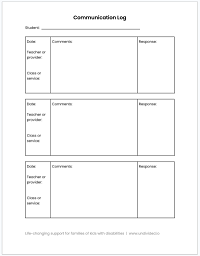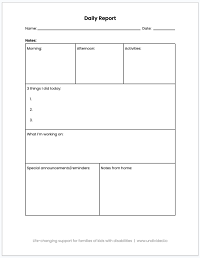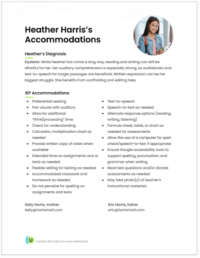4 Tips for Communicating with Your Child’s Teacher
Despite all the work you’ve done to prepare your child's IEP, there are bound to be some bumps in the road — so we asked Non-Attorney Education Advocate Lisa Carey for her best tips on communicating with your child's teacher(s) to set them up for success. Check out Carey’s advice below for smoother sailing when it comes to following up with the teacher.
Start with an attitude of collaboration and cooperation
To make it easier for your child teacher(s) to keep up with their IEP accommodations, it may be helpful to give them a single-page document that they can keep on hand for reference. If you're an Undivided member, check out our printable IEP accommodations template here to make one for your child.
Begin a parent-teacher communication log
Many parents ask for teachers to write a brief, daily account of their child’s progress at school. This might cover academics, behavior, health, services, or whatever is most important to update the family on.
Many families create their own daily parent-teacher communication log with questions that might be relevant to their unique situation, but our advice is to have something the teacher and aide can fill out in two minutes — checkboxes are great! “I like when the aide fills out the log,” Carey says, “and the teacher can approve it. My son’s team uses a form each day that tells what he did, bathroom information, eating information, and has some checkboxes and fill-in blanks. For example, my son sometimes refuses to go to the bathroom to be changed, so there is a box that says ‘Used restroom: yes or no’ and how many prompts.”
When you ask your child’s teacher to collaborate with you on a teacher-parent communication log, ask what format would work best for them. In this clip, Carey offers plenty of examples for paper or digital logs that families can use:
If you're an Undivided member, check out our printable communication log template or our daily report template.
 |  |
According to Carey, you may want to “memorialize” in the IEP what kind of communication you are looking for and clarify what you want to learn from the communication with the teacher. For example, you could decide on a weekly report on struggles, what subjects were taught, what's going to be taught, social, etc., or request to meet once a month in person, over the phone, or on Zoom. Carey suggests to follow up anything verbal with an email summarizing what you and the teacher discussed so that this communication is logged.
Carey’s advice is to prioritize what you’d like your child’s teacher to communicate to you. “You, as a parent, need to decide what it is you want to know, and what it is you need to know, and how frequently you actually need that. You could be open to not getting all of the details about every single thing every single day, because that is a lot.” Maybe that looks like asking about just one or two of your most important concerns each day and then asking for more detail just once a week.
Ask for progress reports and work samples
Stay informed about assignments and how they’ll be modified
You can see the video of our full conversation with Lisa Carey here.
To learn about more upcoming events with Undivided education advocates, subscribe to our weekly newsletter here. Undivided members can also ask questions directly to education advocates and other specialists at bi-weekly office hours! If you're not yet a member, get started here.
Join for free
Save your favorite resources and access a custom Roadmap.
Get StartedAuthor



